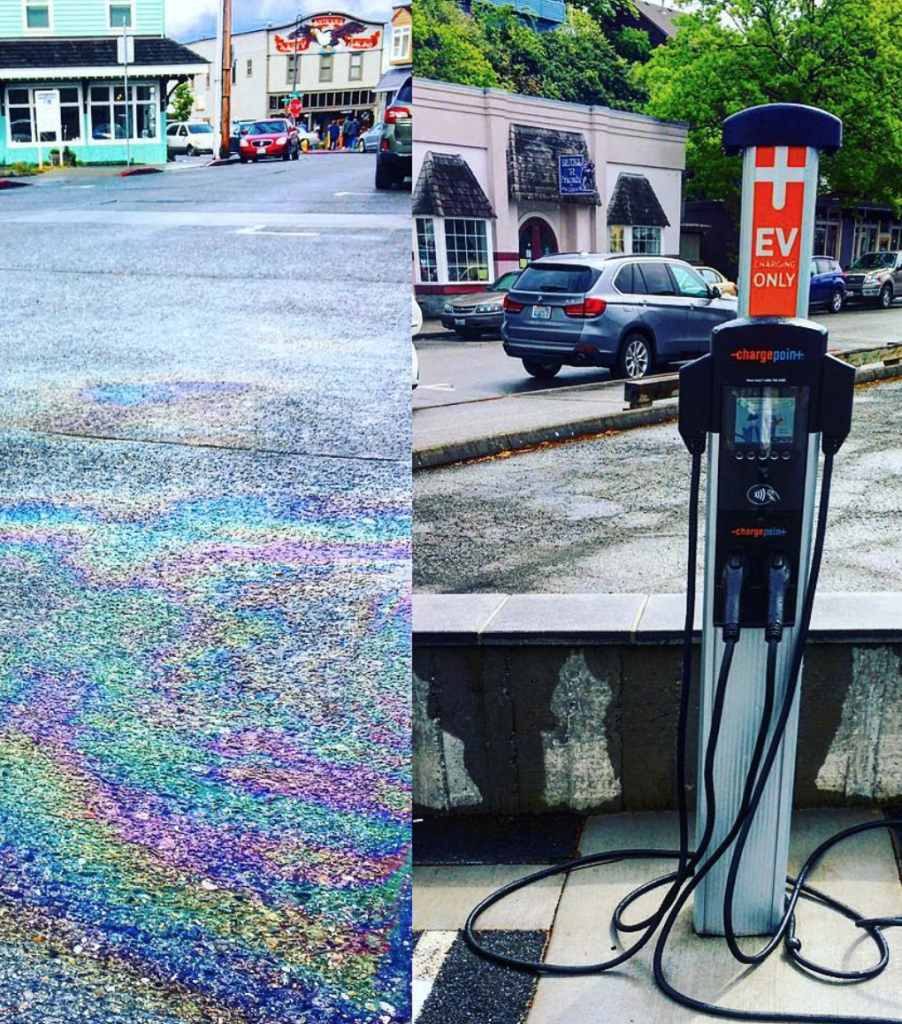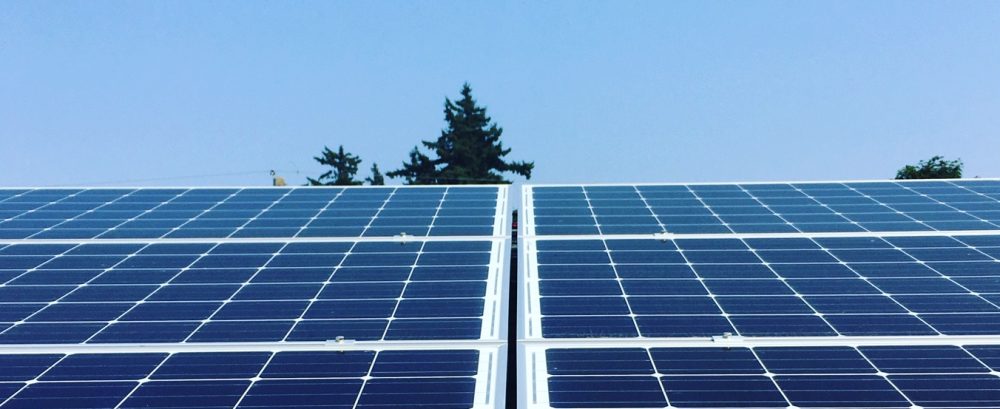EVs and Solar PV seem to go hand in hand. Both are electric and supplant the need for fossil fuels. Interested in powering your car and/or your property with solar? I can help you select the right solar system size. I am also able to give info on charging equipment and forecast your annual cost based on miles travelled.
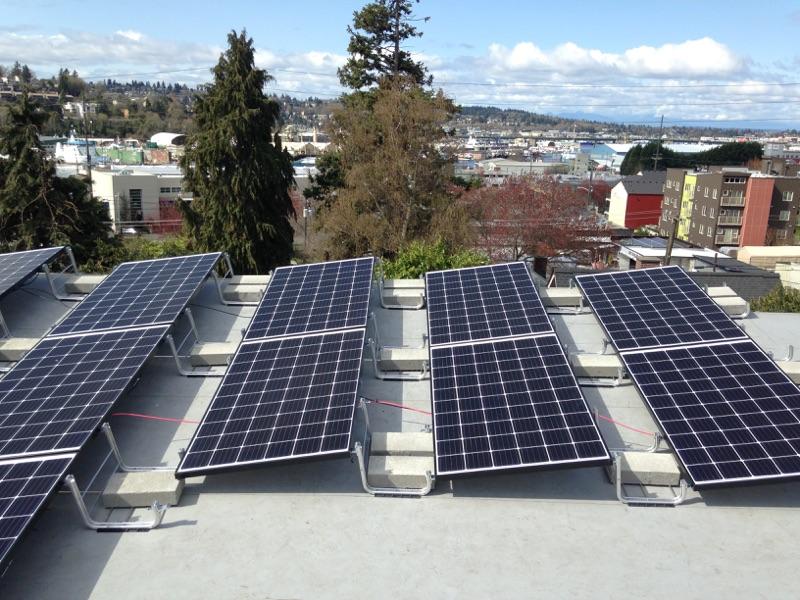
Consumers are increasingly seeing the value in clean transportation by virtue of the cost savings of switching from gas to electric. EVs are proving themselves to be more economical and efficient than driving a traditional gas powered vehicle.
Did you know that they are fun to drive and super quiet as well? As a former EV driver I miss the ease of maneuvering and maintaining such an efficient machine.
Gas is expensive. Driving electric is 50-75% less expensive than driving with gas. Bringing gasoline to market is complex and costly to the consumer. Gas transportation is also WA State’s largest contribution to the CO2 emissions causing global climate change.
Purchase Price Info. New all-electric sedans are priced competitively to other new cars. Usually in the $30K range. Popular 2019 EVs have an approximate range of 200 miles when fully charged. This is plenty for the average commuter. Generally, the more expensive the car, the more battery capacity/storage it has.
Incentives
Utility Rebate in WA: New Nissan LEAFs: Seattle City Light, Snohomish PUD, and other “Public Power” utilities have a $3500 rebate available until January 2, 2020.
WA State Rebates: $2500 tax rebate on new EVs less than $45,000. $1600 tax rebate on used EVs less than $30,000.
Federal Tax Credit: As it is with Solar PV, this Incentive is a Tax Credit, not a tax deduction. Currently valued up to a $7500 maximum. Varies by manufacturer and time of year the car is purchased.
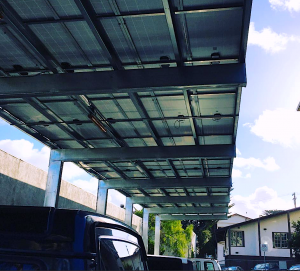
Cost of Driving – Mileage Cost Calculations
Recharge your EV at work, on the road, or at your residence.
A decent estimate for residential electricity cost in Western WA is 11 cents per kWh (kilowatt hour). If you pay less than that then it is less cost to drive your EV too! For example, Tacoma Power duly promotes EV usage; the per kWH cost there is less than 9 cents.
Let’s say you purchase a new, popular EV, e.g. Chevy BOLT, Nissan LEAF, or Tesla 3.
These cars use about .25kWh to drive 1 mile, or 1kWh each 4 miles, or 25kWh to drive 100 miles.
Each 100 miles will cost ~$2.75. (11 cents * 25kWh)
Here is the EPA’s list of 2020 vehicles and their corresponding fuel economy.
Maintenance costs. Internal Combustion Engines (ICEs) have serious hardware: radiators, oil tank and filter, gas tank, pipes, plugs, belts, & sound mufflers! Fact is, upkeep is far more necessary with gas as opposed to electric battery powered cars.
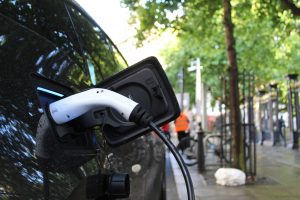
Batteries in lieu of Gas Tank Electric vehicles run on battery power. They are “plug-ins” and have an outlet that accepts electricity to charge the battery. Batteries hold the charge. It is the same as filling the tank, except it is electrons and not liquid gas. There is a Federal mandate that EVs must have an 8 year or 100,000 mile warranty for their batteries.
Extra Tech. The type of technology used in automobiles has an effect on its efficiency. A regenerative braking process is standard in EVs and Hybrids and boosts the efficiency.
- Gas powered cars utilize about 15% of the purchased gas.
- Diesel engines convert about 20% of the amount you purchase.
- Hybrids, aka cars that use regenerative braking, are generally 40% efficient.
- EV batteries in all-electric vehicles convert 59-79% of the electricity you purchase.
Use locally produced electricity! Crude oil extraction is invasive and prone to spills and environmental calamity. Oil is sourced globally and sent to local refineries and prepped for distribution. There is a corresponding cost to consumers, and not least of all, the environment.
In Washington State the majority of our supply is generated by regional hydro power. There is also some wind and solar in the state, and we are striving for more of that!
Electricity is everywhere. How much power you will need to run your car can be pre-determined by a solar professional like me. Using solar, you can power just your property or the local grid as well. Here is my blog post about Off-Grid vs. Grid-Tied for more info.
